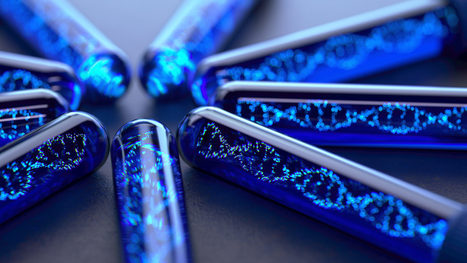The investigational vaccine known as mRNA-1273 was 94.1% efficacious in preventing symptomatic coronavirus disease 2019 (COVID-19), according to preliminary results from a Phase 3 clinical trial reported in the New England Journal of Medicine. The vaccine also demonstrated efficacy in preventing severe COVID-19. Investigators identified no safety concerns and no evidence of vaccine-associated enhanced respiratory disease (VAERD). The vaccine was co-developed by Moderna, Inc., a biotechnology company based in Cambridge, Massachusetts, and the National Institute of Allergy and Infectious Diseases (NIAID), part of the National Institutes of Health. Moderna(link is external) and NIAID previously shared initial results from the COVE trial. On Dec. 18, 2020, the FDA issued an Emergency Use Authorization(link is external) allowing Moderna to make the vaccine available for the prevention of COVID-19 in adults in the United States. The trial was led by principal investigators Lindsey R. Baden, M.D. of Brigham and Women’s Hospital in Boston, Hana M. El-Sahly, M.D. of Baylor College of Medicine in Houston, and Brandon Essink, M.D., of Meridian Clinical Research. The trial was implemented under the U.S. government’s Operation Warp Speed program and supported by NIAID and the Biomedical Advanced Research and Development Authority (BARDA) of the U.S. Department of Health and Human Services’ Office of the Assistant Secretary for Preparedness and Response.
The trial began on July 27, 2020, and enrolled 30,420 adult volunteers at clinical research sites across the United States. Volunteers were randomly assigned 1:1 to receive either two 100 microgram (mcg) doses of the investigational vaccine or two shots of saline placebo 28 days apart. The average age of volunteers is 51 years. Approximately 47% are female, 25% are 65 years or older and 17% are under the age of 65 with medical conditions placing them at higher risk for severe COVID-19. Approximately 79% of participants are white, 10% are Black or African American, 5% are Asian, 0.8% are American Indian or Alaska Native, 0.2% are Native Hawaiian or Other Pacific Islander, 2% are multiracial, and 21% (of any race) are Hispanic or Latino. From the start of the trial through Nov. 25, 2020, investigators recorded 196 cases of symptomatic COVID-19 occurring among participants at least 14 days after they received their second shot. One hundred and eighty-five cases (30 of which were classified as severe COVID-19) occurred in the placebo group and 11 cases (0 of which were classified as severe COVID-19) occurred in the group receiving mRNA-1273. The incidence of symptomatic COVID-19 was 94.1% lower in those participants who received mRNA-1273 as compared to those receiving placebo. Investigators observed 236 cases of symptomatic COVID-19 among participants at least 14 days after they received their first shot, with 225 cases in the placebo group and 11 cases in the group receiving mRNA-1273. The vaccine efficacy was 95.2% for this secondary analysis. There were no concerning safety issues with vaccination, according to the authors. Local reactions to the vaccine were generally mild. About 50% of participants receiving mRNA-1273 experienced moderate-to-severe side effects — such as fatigue, muscle aches, joint pain and headache — after the second dose, which resolved in most volunteers within two days.
Investigators also observed no evidence of VAERD among those who received mRNA-1273. This rare complication was seen in individuals vaccinated with a whole-inactivated respiratory syncytial virus (RSV) vaccine in the 1960s, before there was a capacity to define protein structures and measure immune responses with precision. VAERD can occur when a vaccine induces an immune response that is not strong enough to protect against infection. Although mRNA-1273 is highly efficacious in preventing symptomatic COVID-19, there is not yet enough available data to draw conclusions as to whether the vaccine can impact SARS-CoV-2 transmission. Preliminary trial data suggests there may be some degree of prevention of asymptomatic infection after a single dose. Additional analyses are underway of the incidence of asymptomatic infection and viral shedding post-infection to understand the vaccine’s impact on infectiousness. The authors concluded by discussing the unprecedented efficiency of the candidate vaccine’s development, noting, “this process demonstrates what is possible in the context of motivated collaboration among key sectors of society, including academia, government, industry, regulators and the larger community.”
Findings Published in NEJM (Dec. 30, 2020):
https://doi.org/10.1056/NEJMoa2035389



 Your new post is loading...
Your new post is loading...









